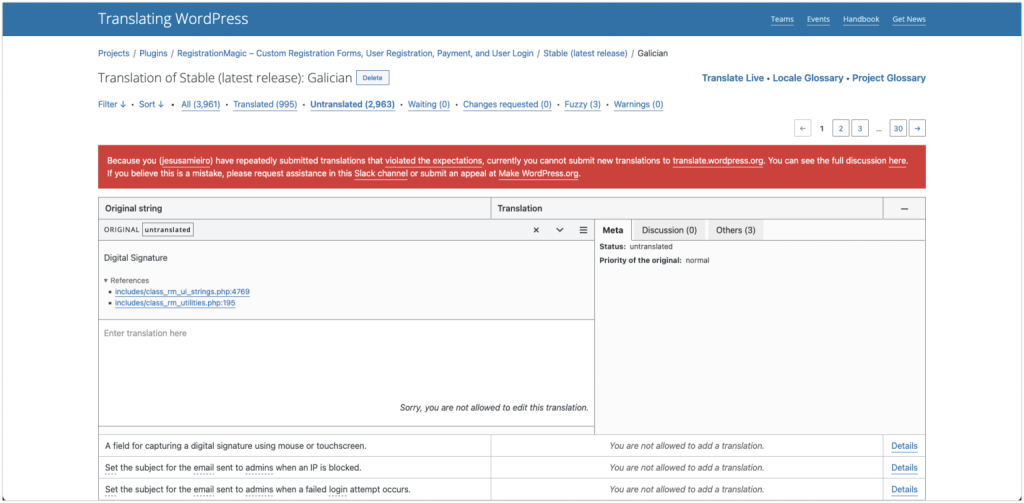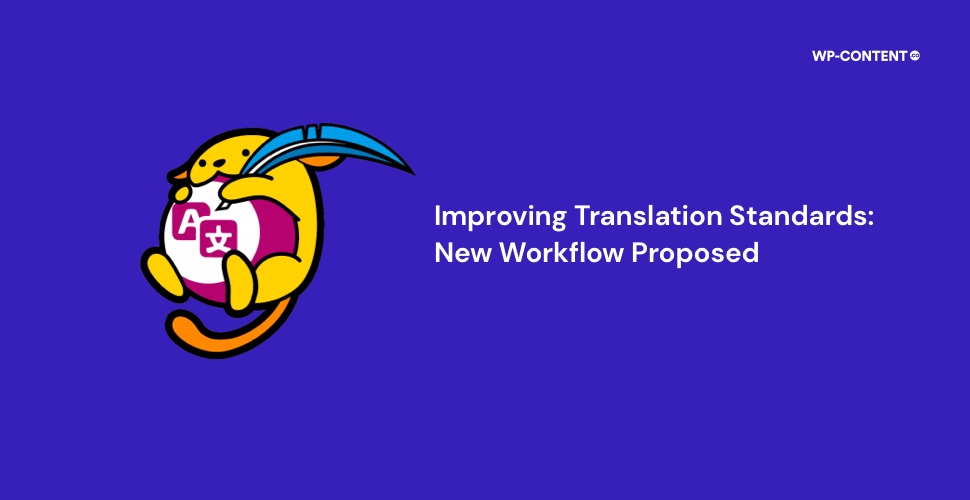In response to ongoing concerns about inconsistent translation quality, a new structured workflow has been proposed by Jesús Amieiro to help address the issue more effectively. Sparked by a discussion initiated by Fernando Tellado, the new proposal aims to support volunteer validators who play a key role in maintaining translation standards while introducing a transparent and fair process for dealing with repeated low-quality contributions from contributors.
The Core Issue and Proposed Solution
Fernando Tellado, earlier this year, expressed frustration over contributors submitting unchecked AI-generated translations, “ We GTEs receive AI translations on a daily basis…..as they send directly the – conversational – generative AI response as translation, and honestly, we are starting to get a bit fed up with AI translations being sent without the slightest review.”
He also stressed that this disrespects the time and effort of volunteer validators who review translations in their personal time, often at the cost of work and family obligations, “ Someone should remember that there are still people out there, that we take time away from our jobs and families to check translations, and that it is a total disrespect to our altruistic volunteer work…..”
To tackle this issue, he suggested, “ the TEGs can block users who send such translations, because the problem is that those who do this send them again and again, implying a constant and repetitive disregard of our time.”
Now, the proposed workflow involves a four-step process that begins with validators reaching out to the contributor using the built-in discussion tool to offer guidance and feedback.
If there’s no response, the next step is to contact the contributor via the #polyglots channel on Slack. If these attempts fail and poor translations continue, validators can publish a detailed report on the Polyglots P2 blog using the #block-spammer tag.
After the issue has been publicly documented, and there is no response from the contributor, a user with commit access may take further action by adding the contributor’s username to a dedicated plugin. This would temporarily restrict their ability to submit translations. Jesús Amieiro developed the WordPress.org GP Contributor Moderation plugin explicitly for this.
If a user is added to the block list via this plugin, the plugin will display a notice as seen below.

The feedback to this proposal is now open. Jesús has made it clear that the aim is to build a clear and respectful process that upholds quality and values everyone’s contributions, “The intention is to create a fair, transparent, and effective system that improves translation quality and respects the valuable contributions of our entire community.”



